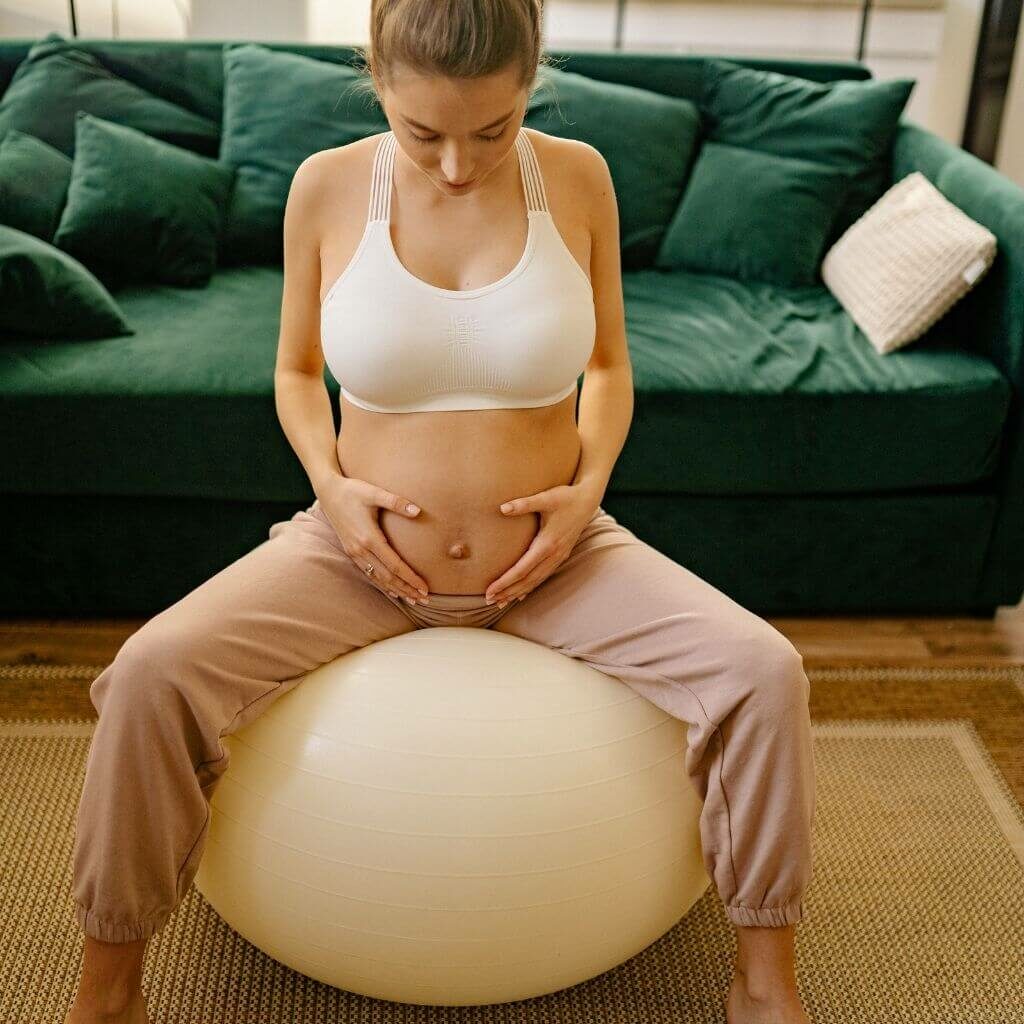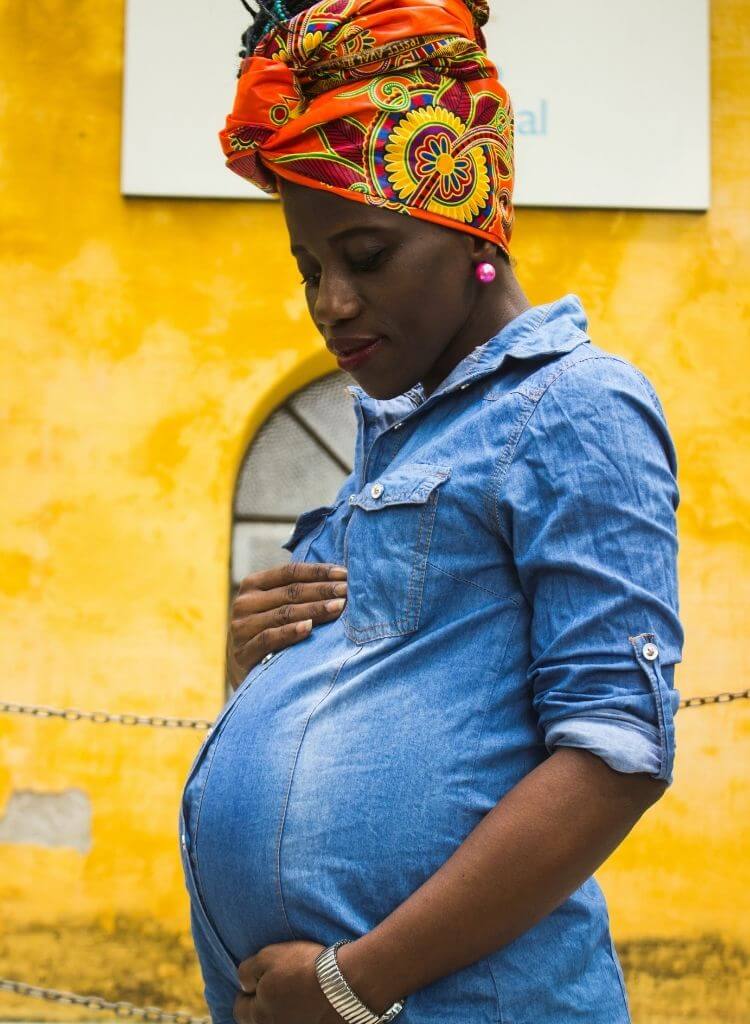Why You Should Hire a Birth Doula
Last updated on October 10th, 2022
Are you pregnant? Odds are, you may have heard the term “doula” thrown around. Maybe you know what they are and are wondering if they’re worth the money.
Or perhaps you have no idea what I’m talking about, but are concerned with having a good birth experience.
This article will attempt to explain what they are and the amazing benefits they can provide.

Summary
A birth doula is simply someone who serves you during the birth of your child. They can even assist your birthing partner by taking some of the pressure off and providing guidance. Studies show that the benefits can include higher satisfaction rates with the childbirth experience, fewer interventions, lower cesarean birth rates, and fewer birth complications involving the baby.
Bottom line: They work for YOU and only you. You and your baby are their TOP priority.

Navigation
- What Is A Doula?
- Your Birth Experience is About You
- What Does the Research Say About Doulas?
- Don’t Doulas Only Support Non-Medicated Births?
- I’ve Experienced Trauma. Are They Trained for That?
- What About My Partner?
- Can My Nurse Offer the Same Support?
- Can I Use A Hospital-Provided Doula?
- When Should I Hire One?
- How Much Does It Cost?
- How to Choose a Doula
- Where to Find a Doula
- Take Away Message
- RECAP
- FAQ
- References
What Is A Doula?
The word doula means “woman servant.” If you research the past, you will discover that birthing women rarely ever labored or birthed alone throughout history.
A birth doula is a trained professional who provides emotional and physical support, education and advocacy during your pregnancy and birth.
They have training in hydrotherapy, massage, counter-pressure and calming breathing techniques. Though doulas are not medical professionals, for example, they do not catch your baby during birth; they can support you in various ways to manage discomfort and help you remain calm from start to finish. More than anything, they are there to help YOU as you walk through the most challenging parts of your pregnancy and birth experience. Sources: DONA / Evidence Based Birth
DONA International, the world’s first, largest and leading doula certifying organization, defines a doula as:
“A trained professional who provides continuous physical, emotional and informational support to a mother before, during and shortly after childbirth to help her achieve the healthiest, most satisfying experience possible.”

Your Birth Experience is About You
When a doula walks into the birthing space, they bring with them a sense of calm that reminds everyone, “it’s going to be ok.”
Calm in Unfamiliar Territory
Some birthing spaces, especially those in hospital settings, routinely have bright lights, unfamiliar smells or people and lots of devices and potential contraptions you are likely to be told are “routine.” Even if you have toured your hospital’s birthing facilities, you still may feel a little out of sorts when you arrive to your labor room because it’s still a new place.
A birthing woman needs someone to bring about that sigh of relief to keep her laboring hormones in check and moving in a natural positive direction. After all, we are in unfamiliar territory and may be out of our element with various discomforts. A doula brings a friendly smile and sometimes even a “Mary Poppins” style bag full of special tricks and snacks. Bonus! (Our doula got my husband a variety of snacks and honey sticks for me).
Your Ultimate Servant
If you hire a doula, you will likely have already built a bond of trust with them throughout your pregnancy, even if you hired them later on in your third trimester. She or He (yes, there are male doulas) will immediately put you before everything else.
They may do things like:
- Help you maneuver into the most comfortable labor positions
- Apply counter pressure
- Provide massage to achy areas
- Use positive affirming words
- Accompany you to the bathroom
- Dim the lights
- Play music
- Diffuse oils
- Remind your husband/partner to breath (essential)
Information Is Key
One of the most significant benefits is simply easy access to information.
They can:
- Explain what’s happening or what’s coming next.
- Help facilitate communication between you and the medical staff.
- Provide guidance and support for loved ones who may not know what to do.
You are on center stage in that room and your doula will be next to you every moment as you decide what you need and how to labor. They are also incredibly gifted in providing guidance when you aren’t exactly sure what you need and will not feel offended if you tell them to change something.
Bring a loved one, friend or doula for continuous support.
Lamaze International
What Does the Research Say About Doulas?
Many studies have shown numerous benefits to both the mom and child. Not just from a comfort standpoint, but safety as well.
Benefits for Mom
According to the National Institutes of Health, some benefits of doula support compared to traditional care include:
- Greater likelihood of vaginal birth with neither vacuum nor forceps
- Higher rates of satisfaction with the childbirth experience
- Shorter birth duration
- Fewer interventions
- Reduced likelihood of using pain medications
- Lower rates of cesarean birth
Additional resources: Childbirth Connection, Evidence Based Birth, NCBI and WHO
In the book, Giving Birth with Confidence, the Official Lamaze Guide, Lamaze International cites research from two systematic reviews of women who received continuous support.
“Women who receive continuous, one to one support throughout labor are less likely to request pain medication or use Pitocin during labor, are less likely to have cesarean and more likely to have a spontaneous vaginal birth, and are more satisfied with their births and less likely to have severe pain in the days after birth.” (Giving Birth with Confidence, 3rd Edition, Judith Lothian & Charlotte DeVries. Chapter 8. Page 103)
Many studies also show a doula can reduce the need for interventions and labor can be shorter for many women as they bring a sense of peace and calmness to the birth space. When you are calm and relaxed, you can trust your body and your natural ability to birth.
Benefits for Baby
There is also evidence supporting positive outcomes a doula has on the baby itself after birth.
These include:
- Health birth weights
- Fewer birth complications involving their baby
- Stronger likelihood of breastfeeding being initiated easily after birth
Your Birth Experience Matters
All of this evidence is proof that your birth experience does matter. Your birth experience is about you, but more than that, it isn’t just about the day of labor. It’s about your investment in feeling prepared, supported and encouraged before, during and after your baby is born.
A birth doula can help you continuously during your labor and birth, encouraging your labor to progress in a positive direction. This also allows for your birth outcomes and long-term memories of your birth experience to likely be highly positive long after you are home with your baby.
If a doula were a drug, it would be unethical not to use it.
John Kennell, MD (Neonatologist and Researcher)
Don’t Doulas Only Support Non-Medicated Births?
One widespread misconception is that doulas only support non-medicated births. Doulas support EVERY delivery. Their most significant goal is to support YOU.
Suppose you chose to have pain relief through the use of an epidural or any other pharmaceutical. In that case, they will honor whatever decision you make and adjust their comfort techniques so you continue to feel supported and happy. They even accompany clients into the operating room if a cesarean is needed.
They are chameleons and can adapt seamlessly to any situation.

I’ve Experienced or Am Experiencing Trauma. Is a Doula Trained for Special Circumstances?
If you are walking through pregnancy needing more support due to past or present trauma, be assured that many doulas out there have gone through further training to facilitate your specific situation and understand the unique ways to support you. We call these doulas “trauma-informed doulas.”
Sometimes pregnancy isn’t magical and it’s ok if your pregnancy has been difficult due to previous or current challenges you are facing. Do not be ashamed, instead feel supported, knowing your story deserves grace. Life is more difficult for some of us than others. You are worthy of being treated and met with everything you need. Many doulas I know have deep hearts ready to serve.
What Kind of Trauma Are We Talking About?
Trauma can look very different to different people.
This could include:
- Domestic violence
- Previous pregnancy loss (miscarriage or stillbirth)
- Current or past addiction to drugs or alcohol
- Emotional, physical or sexual abuse/assault
- PTSD
- Stress or a mental health diagnosis
It could even be a crippling fear of the unknowns plaguing your mind about the birth experience to come. I assure you, if you are pregnant and a trauma survivor or are currently going through trauma, there is a doula for you.
Trauma can be triggered during pregnancy, labor and birth. Do not be afraid to seek out a doula who has experience working with this type of challenge. It’s essential to find a doula skilled in the area of trauma who can understand your history or current situation so they can provide extra care appropriately and sensitively to support you.
Bereavement Training
Many doulas also have bereavement training. Companies like Still Birthday (SBD) provides training to walk families through the most challenging situations. Their website explains, “The SBD doula is uniquely qualified to provide support in situations of a fatal diagnosis, carrying to term, and NICU care.”
Check them out for more information and a list of trained doulas that can help you when needing extra care.

What About My Partner?
Another common concern a pregnant mama faces is how a doula will support their partner or spouse. If you have a husband/partner, you/they may wonder how a doula will impact their role in the birth space. The doula is just as much there to encourage your partner as they are to support you.
Studies show that having BOTH a supportive partner and a doula resulted in:
- Lower C-section rate
- Lower epidural use
- More positive birth experience for fathers
Tag Team
Your partner won’t get pushed aside and ignored. They will be uplifted and reminded of ways to be close to you as you ride the waves of each contraction. Both your doula and your partner know your preferences and can advocate for you or remind you of your options if your labor encounters a turn in which medical staff in a hospital are encouraging (pressuring) you to make a swift decision.
Pressure Reduction
They also help partners by reducing any pressure they may feel to provide adequate comfort for the birthing mother during the sometimes lengthy and challenging stages of labor.
They can:
- Help explain what’s going on.
- Answer any questions they may have.
- Allow them to take breaks without feeling like they have abandoned their partner.
Trauma Reduction
Many people assume that a dad will enjoy the labor and birth process because their child is coming into the world. Still, it’s essential to respect the reality that labor and birth can be a traumatic experience for dads.
The National Childbirth Trust (NCT), the U.K.’s largest parent charity, mentions PTSD in labor partners. According to limited research, it is estimated that about 5% of birth partners develop PTSD symptoms after being present during the birth. This is mainly due to fathers witnessing someone they love (mom in labor) go through distress and having very little control over what is happening to her. Also, graphic images and certain sights they may encounter during the birth process can negatively impact them.
In general, this is an issue not typically talked about or mentioned often. Doulas can help dads as they navigate the experience of labor and birth with their wife or partner. They can provide many breaks for dad and step in to provide comfort measures and encouragement if dad needs a break, which, let’s face it, will undoubtedly happen during the labor and birth process.
Can My Nurse Offer the Same Support?
Did you notice how a doula puts your comfort at the center in all of those things above? They stay with you throughout your labor and birth. They will remain up until you have a successful breastfeeding latch with your baby.
Sure they will be tired just like you, but they will not leave your side or leave you to “figure it out” alone. In most hospital settings, it is improbable you will ever be granted that type of continuous support by any medical staff attending you during the length of your labor.
Nurses Provide Clinical, Not Labor Support
Medical staff simply cannot provide this ongoing support. It’s not because they don’t want to, but their patient load and responsibilities cannot allow for it. You might even experience the staff changing shifts during your labor, which means new faces and unknown personalities just as you may be getting adjusted to someone you felt cared well for you.
ON AVERAGE, one U.S. study concluded that your nurse would only spend about 12% of their time providing any emotional, physical or informational support to you during your labor, birth, and postpartum stay in a hospital setting.
Modern hospitals make it difficult for staff to give birthing mothers continuous support. As birth has become more medicalized, the focus of nurses’ work has shifted from providing comfort to supervising medical interventions such as routine EFM, IV lines, epidurals, inductions, and cesareans.
Rebecca Dekker, Evidence Based Birth
In labor, you are worth more than 12% of someone’s time.
My Place of Birth Offers to Provide a Doula When I Arrive. Why Should I Hire My Own?
That’s a great question. It all comes down to trust, availability and loyalty.
They Don’t know You
Some hospital systems do staff doulas that work in-house and “on-call” for moms in labor who wish to utilize the support. The biggest downside is these doulas won’t know you and won’t know your preferences. It is vital to be informed about your choices, understand your preferences, and be supported no matter what you decide for your baby’s birth.
Many women who use a hospital doula they didn’t previously connect with don’t have the same overall positive experience as an expectant family who hired one before birth. There is a significant benefit to developing a relationship before the big day.
You May Not Get One
Another major downside is that you don’t get to “reserve” a doula ahead of time. If you go into labor on a bustling evening and the four doulas on staff are already with laboring mothers, you are essentially out of luck. You are likely to be in a sensitive, emotional state due to being let down and consequently disconnected from your birth experience. Don’t take any chances. Solidify your birth team before the big day arrives. A particular doula may not be suitable for you, but there is a doula for everyone.
They Don’t Work for You
Finally, a doula who works directly for a hospital instead of directly for you can be a risky choice. Any doula working for a hospital works for a hospital, not for you. They may serve and care for you during your labor and birth, but they also might put the needs of the hospital above yours and may be more agreeable to overly aggressive or pushy medical staff that might only care about “getting it done.” When you are in labor, you need someone committed to placing your health and comfort as a top priority.

When Should I Hire a Doula?
It’s likely that when you hire a doula, you will have at least one meeting to discuss various things. If you hire one early in your pregnancy, you will probably have multiple appointments. It is never too early to locate and hire one to ensure you are covered with the best support beginning as early as possible. If you are late into your pregnancy reading this, hiring one is never too late either. You could hire a doula today and go into labor tomorrow and still have the extra support you need.
How Much Does a Doula Cost?
A doula could cost anywhere from a few hundred dollars to over a thousand depending on your location. The cost is usually tied to their level of experience and offered services.
Try not to get caught up on money. If you cannot afford one, ask around. Some nonprofit organizations and companies offer services with low or no cost and payment plans to ensure you receive the support you want during labor. Don’t look at the most expensive ones assuming they will be the best fit for you. Maybe they will, perhaps they won’t.
Ask friends, your medical provider and other families in your community who may have hired a doula to recommend one. You are not obligated to hire the first one you talk to or email. Just like people click in friendships, so will you with the right doula.
How to Chose a Doula
Try to have questions prepared to ask (nothing is off limits here), inquire about their birth philosophy and what sets them apart from their peers.
Ask questions like:
- What is your education?
- How many births have you attended?
- What are your priorities?
- How do you help with pain management?
- How long will you stay after the birth?
Check out the National Partnership – Childbirth Connection for an extensive list of questions to consider asking.
Ultimately, remember that if you choose this person, they are working for you and will become part of your birth team, which means it’s vital you mesh well together.
If your preferences are not something they can support or find your personalities don’t click, they ethically should be open in sharing their feelings that they might not be the best person to support you in the way you desire and deserve. If this is something you encounter, kindly request they help you find someone else who is a better fit.
Not every doula is right for you, but there is a doula for every birthing woman. They should fulfill every aspect of what you want out of your birth experience. You must find someone who clicks with your personality and ultimately is ready and excited to support you in whatever your birth plan dreams are.
Where to Find a Doula
Maybe you are at this point in the blog post and thinking, “Ok, I’m ready to find a doula, but where do I look?” Great question!
Some things to consider would be to ask around in your local friend network. You may know someone who hired a great one for their birth and would recommend them to you. Ask your medical provider, childbirth educator and even do local searches for locally-owned doula businesses.
Finally, you can search websites like Doula Match.Net to locate doulas in your area who may work independently.
Take Away Message
My message is simple, hire a doula. They will be with you in your most vulnerable moments during labor, and through that, remind you of your inner warrior. They will be with you for the entire process even before labor begins, supporting you and your partner through various measures. They help you through every decision you make, regardless of their personal opinions and rejoice in the birth of your child right next to you.
I can promise you this, if you include a doula to join you on your birth team, they will leave a lasting mark on your birth experience forever. Consider hiring one because you deserve an empowered birth.
As always, the more educated you are about the birth process and what to prepare for, the more equipped and confident you will be. Consider joining me for a private birth course and feel as ready as ever to bring your baby into the world!
Recap
A doula…
- Is a trained professional who provides emotional and physical support as well as education and advocacy during your pregnancy and birth.
- Will put your needs first and will sacrifice their comforts from the beginning to the end of labor.
- Will support every birth: medicated, unmedicated, hospital and home births and even specific circumstances like cesarean births.
- Can support special circumstances, including trauma.
- Does not take the place of your partner in labor.
- Is backed by research and proven to be effective.
- Is the only support person that will be with you around the clock (besides your birth partner).
- Can be hired anytime during your pregnancy, but the earlier the better.
- Is available for every mother at a variety of price points included low and no cost.
FAQ
They are trained professionals who will support and advocate for you during labor and birth. Their purpose is to help women have a safe, memorable and empowering birthing experience.
They are your ultimate servant and can help keep you as calm and comfortable as possible by providing encouragement, massage, guidance on comfortable positions during labor and other pain management techniques. They will also remind you of your wishes, advocate for you and help communicate with hospital staff.
Studies show that a doula’s benefits include a higher chance of a vaginal birth, shorter birth duration, fewer interventions and medications, fewer complications with the baby, and an overall higher satisfaction rate with the childbirth experience.
No, they will support any birth environment, including medicated and non-medicated (natural) births, as well as be with you during a C-section.
Definitely! Some have special training and are called “trauma-informed doulas.” They will be able to help and be more sensitive to people who are dealing with more serious issues. They can even help when dealing with a fatal diagnosis such as a stillbirth.
Yes! Birth partners can include family members that may not have much experience in this area. A doula can help give them guidance, information and even a break if they need it. Their presence can also reduce the rate of trauma that support people can sometimes experience.
Unfortunately, nurses are more concerned with providing clinical services, not emotional ones. In fact, one study showed they might only give you 12% of their time.
Again, they are not a good choice because they work for the hospital and not for you. Ultimately, they may put the needs of their employer before your own. You are also not guaranteed even to get one since they are usually first come, first served.
It’s never too early or too late to hire one. While earlier is always better because it allows more time to get to know each other and go over your birth plan, even a doula you hired a day before you give birth will still provide many benefits. Remember, they are present to serve you.
They can cost anywhere from a few hundred dollars to over a thousand. While price, services and experience usually go hand in hand, cheap doesn’t always mean bad and expensive doesn’t always mean good. You need to find someone you are comfortable with.
As mentioned above, consider price, but also be sure to interview them and ask lots of questions. Inquire about their education, experience, birth philosophies and comfort techniques.
Ask your medical provider, childbirth educator, friends and family that may have used one and even do local searches for locally-owned doula businesses. You can also search websites like Doula Match.Net to locate doulas in your area who may work independently.
References
- https://www.dona.org/what-is-a-doula/
- https://evidencebasedbirth.com/the-evidence-for-doulas/
- https://www.lamaze.org/childbirth-practices
- https://pubmed.ncbi.nlm.nih.gov/28681500/
- http://www.childbirthconnection.org/giving-birth/labor-support/research-evidence/research-and-evidence-1/who-provides-support.html
- https://www.ncbi.nlm.nih.gov/pmc/articles/PMC3647727/
- https://www.who.int/reproductivehealth/publications/intrapartum-care-guidelines/en/
- https://www.lamaze.org/giving-birth-book
- https://www.cochrane.org/CD003766/PREG_continuous-support-women-during-childbirth
- https://pubmed.ncbi.nlm.nih.gov/32014617/
- https://stillbirthday.com/
- https://stillbirthday.com/category/trained-sbd-doulas/
- https://www.ptsduk.org/what-is-ptsd/causes-of-ptsd/post-natal-ptsd-in-birthing-partners/
- https://www.nct.org.uk/
- https://www.nct.org.uk/labour-birth/you-after-birth/how-do-i-support-my-partner-after-birth-trauma
- https://www.nationalpartnership.org/our-work/resources/health-care/maternity/what-to-ask-doula.pdf
- https://doulamatch.net/
Read This Next
Are You Ready to Take the Next Steps?
Your birth experience will be something that you remember for the rest of your life.
A Childbirth Education Class will educate and empower you, resulting in a better experience.
Benefits include:
- More confident decisions
- Lower potential for interventions
- Shorter labors
- Improved breastfeeding
- Positive birth experience memories
Medical Disclaimer
All content and information on this website is for informational and educational purposes only. It does not constitute medical, psychological or health advice of any kind, and we do not warrant that the information presented herein is free of any errors or omissions. Always consult a professional in the medical and health area for your particular needs and circumstances prior to making any medical or health related decisions.
Please see our Disclaimer for more information.
Icon Attributions